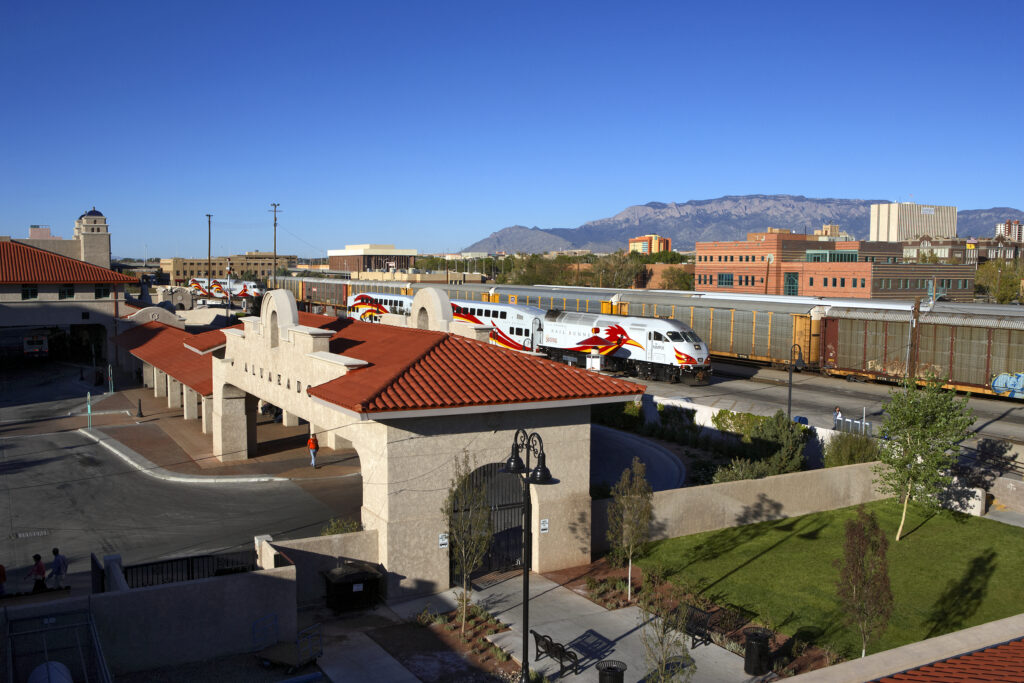
Transportation Working Group
OUR OBJECTIVES-VISION-PLAN
Within the context of the Mission of the Environmental Justice Caucus, the Transportation Working Group will work to empower communities across New Mexico to reduce our dependence on automobiles, which produce 1/3 of gases causing climate change. We will do so working to create Transit Oriented Developments that empower and enrich communities while increasing the health and safety of all members of our state.
Transit Oriented Developments
(TOD) focus communities around non automobile centric transportation hubs, such as rail stations and revitalized downtown centers.
- Providing Alternate mobility creates a hub where trains, buses, bicyclists and pedestrians can safely navigate through a community.
- Economic Expansion where businesses, such as grocery stores, restaurants, and other needs are clustered in such a way that every service a person needs can be found within the community development.
- Walking together TODs provide safe areas for pedestrians and bicyclists, which allow them to walk to any services that they require, and then return to their homes via the transportations provided at the hub.
- Standing in Solidarity with communities most likely to rely on mass transportation, bicycling and walking are also most impacted by pollution, economic exploitation, and climate change in their fight for Environmental Justice.
Transit Oriented Developments (TOD) focus communities around non automobile centric transportation hubs, such as rail stations and revitalized downtown centers.
- Providing Alternate mobility creates a hub where trains, buses, bicyclists and pedestrians can safely navigate through a community.
- Economic Expansion where businesses, such as grocery stores, restaurants, and other needs are clustered in such a way that every service a person needs can be found within the community development.
- Walking together TODs provide safe areas for pedestrians and bicyclists, which allow them to walk to any services that they require, and then return to their homes via the transportations provided at the hub.
- Standing in Solidarity with communities most likely to rely on mass transportation, bicycling and walking are also most impacted by pollution, economic exploitation, and climate change in their fight for Environmental Justice.
Communities and streets must be safer for all users.
- Fewer Cars Our addiction to automobiles creates less community spaces and more dangerous streets for all users.
- Road Diets Wide multilane roadways lead to speeding, fewer narrower lanes create natural low speed zones that are safer for everyone, including drivers.
- Safer Streets create more opportunities to create walkable communities, which are not only safer but create greater economic growth for local businesses.
The Transportation Working Group will work to reduce our reliance on automobiles through action and engagement
- Action: organizing and advocating with decision makers, including planners and legislators, in our communities for progressive legislation, regulations, and programs that reduce our dependence on automobiles.
- Community Engagement on rail projects, dedicated, safe and protected bike lanes, transit oriented development, and safer street projects